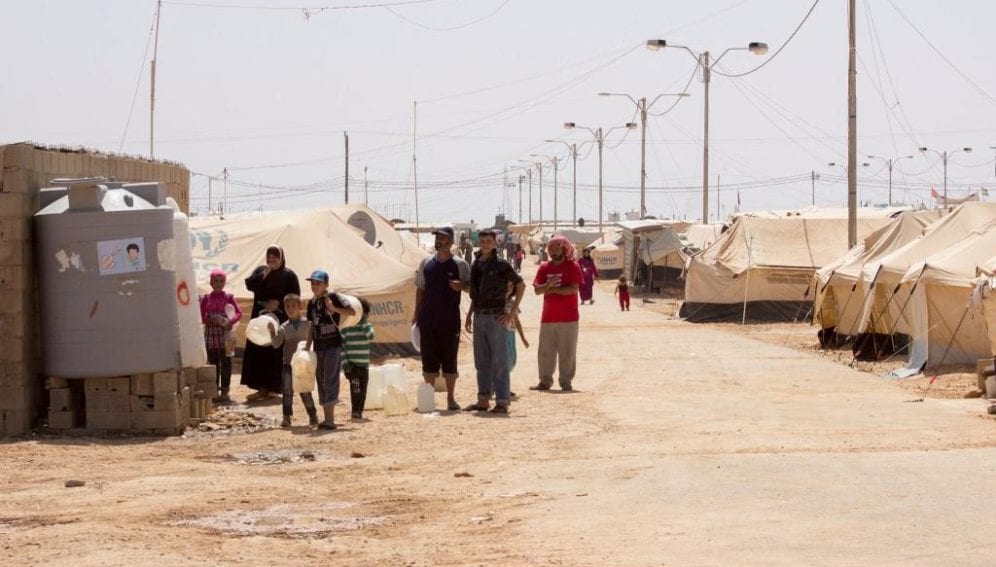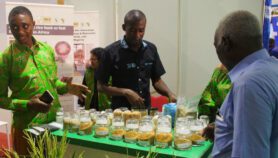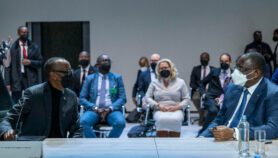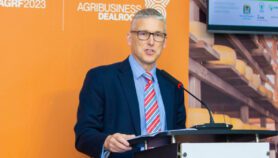By: Najat Shana
Send to a friend
The details you provide on this page will not be used to send unsolicited email, and will not be sold to a 3rd party. See privacy policy.
The competition was launched by MIT Enterprise Forum of the Pan-Arab Region to look for technology-based solutions for the problems causing refugees' suffering.
The purpose was to participate in alleviating a refugees' global crisis, whose number exceeded 21 million and more than half of them are less than 18 years old, according to the United Nations High Commissioner for Refugees (UNHCR).
With the worsening crisis, and the failure of governments around the world to find solutions to the situation, it was necessary to create solutions that meet the basic needs of the refugees to live with dignity and safety.
That was achieved by allowing young people from the Arab and Western worlds to present their technology-based ideas and innovations, as clarified by Hala Fadel, Chair of the MIT Enterprise Forum of the Pan Arab Region.
Teams from across the world applied for the competition. After the final rounds of the competition between those who submitted innovative solutions, 21 teams were shortlisted out of which seven were announced winners.
The awards, estimated at about US$150 thousand, were distributed on October 4, in a special celebration held in the Jordanian capital, Amman.
The contest was conducted in partnership with Zain Group and MBC Hope initiative and supported by the UNHCR, the United Nations Children's Emergency Fund (UNICEF), Uber, and Jusoor organization.It was remarkable that Recycle Beirut firm, which kicked off its operations in 2015, was named a winner. The company took advantage of the presence of a million and a half Syrian refugees in Lebanon, hiring refugee women in the wastes recycling sector.
A Syrian worker in the company says, "I am proud of this work and not ashamed of it," while another stresses: "it offers a good pay for a few work hours and I also contribute to cleaning up the environment." A third adds that her work helps her son to get back to school. All of them agreed that they hope to continue working in order to be able to raise their children and survive what they described as their "hard life."
The victory of the Moroccan team Evaptainers was for the innovation of a cooler that prolongs the shelf-life of food for refugees, especially in camps. They made modular evaporative coolers that works in off-grid areas and relies only on water.
"One liter of water can decrease the temperature inside the cooler for two days to -2 degrees Celsius," according to the innovators who are looking to partner with non-governmental organization to test it in Morocco.
The cooler is estimated to cost less than US$30, and can be easily folded.
A Jordanian team deserved one of the competition's awards for proposing an idea to find and prove the identity of the refugee, by creating an updatable electronic platform which includes all his data, especially health and education records, as refugees usually lose their official documents while leaving their home country.
The proposal was submitted by Boloro/BanQu, which flies the motto "Dignity Through Identity".
One of the team members; Lina Nogom, explains to SciDev.Net: "In addition to the information and data of the refugee, we will create an electronic portfolio for each refugee, like a bank account, which allows him to receive aid and transfer money to any country."
"The electronic identity remains with refugee wherever he travels," she notes that the proposal has already been applied in countries around the world, and it is expected to roll-out before the end of the year in a partnership with the governments and the UNHCR to get refugees data.
The Dutch project, Open Embassy, won the first award, by providing an electronic platform through which refugees find answers to their questions about the asylum process. Meanwhile, the Swiss project, LEDlife, provides solar powered lamps for children, which they can assemble themselves.
From the United States, winners included Change Water Lab project, which invents a low-cost, evaporative toilet, which is set for a pilot test in Syrian refugee camps in Jordan, and NaTakallam platform, which provides employment opportunities to Syrian refugees to teach and train on Arabic language to students around the world, over 'Skype' social networking platform.
The CEO of Zain Group, Scott Gegenheimer, opines that the projects originating from the suffering region are the best solutions to its problems.
"The need still exists for new solutions and innovations as the magnitude of the challenges faced by refugees are bigger than what we thought," said Eva Kaplan, innovation specialist in UNICEF office in Jordan.
This piece was produced by the Middle East and North Africa edition














